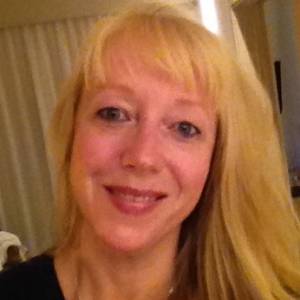The Bekaa Valley, Lebanon
Today we intended to set off early, but were delayed as we waited for the ice to melt on the roads. The sky was blue, but as we wound our way out of Beirut's lively streets and up into the Bekaa Valley the temperature dropped considerably. A week ago a five day snow storm hit the area closing roads and leaving out team snowed into the office. Their greatest concern was for the tens of thousands of Syrian refugees living in flimsy tented structures, now cut off without heat, sanitation, adequate food, or even water as their supplies were frozen over. After an hour and a half we made it to the field office to meet up with the staff based up there. They'd called the refugees camped in fields down a long track to ask what they needed - bring water and bread, they'd asked. It took another hour and a half to reach them, and finally we could drive no further. In a humbling gesture the families offered to walk through the snow to meet us at the main road so we wouldn't get wet in the snow. We were determined to get the supplies to them though and walked the last stretch in our lined wellies, snow boots, fleeces and waterproofs to find young children barefoot in sandals out in the snow because it was a cloudless day which meant sun, and being outside was warmer than being in their tents.
I am so impressed with our fantastic team. The refugees were understandably upset: cold, coughing, damp and miserable, living in fear of another storm. "We looked death in the eyes" the grandfather of the settlement told me, tearful and shaking. Although the large group were agitated, our team treated them with the utmost dignity, respect and kindness, gently taking time to listen as each explained their situation, their needs, concerns and problems. A child with a chest infection who needed medical care, someone who had received two fuel distributions whilst another had none, and their overwhelming desire for their children to go to school. "How many of these children go to school" I asked. None. For a nation that placed so much value on education, this is heartbreaking for them. There were several young babies, none had a birth certificate. Getting one requires going through a complex process and making payments at every stage. It's difficult and expensive, and prone to corruption. If they reach a year, registration gets even more difficult as it requires an obligatory DNA test which costs $800. That's an impossible amount for most, and those children will became stateless, outside the system, unregistered and unrecognised, denied education, medical care, a nationality.
Again there were no teenage boys around. We know many work and may be bringing in the only cash - sometimes as little as $1.50/day.
When everyone had had a chance to talk, phone calls had been made, some problems solved, other would take much more work. As much as the water and bread we distributed to each family, they needed to know someone cares, to be able to talk and tell someone what was happening to them. "When you go back, make sure the world doesn't forget about us" someone asked.
The field team is clearly drained and emotional as we start the drive back to Beirut. They explain how difficult it is to get answers and make things happen. Registering a birth shouldn't be this hard, they say, it's clear they are frustrated and angry. It will be a struggle to find a clinic that will treat the sick child, and even if they find one, it will be a struggle to get her there.
None of the team have eaten yet today, so we stop to buy food as we have a long drive ahead through the mountain road and their optimism starts to return. The mountains are stunning. At one point we are close enough to the Syrian border and the Syrian staff hold up their phones as they briefly connect to the Syrian network - it's a little bit of home for them and they gaze wistfully towards their country. And then it was gone.
- 0
- 1
- Apple iPhone 4S
- 1/5000
- f/2.4
- 4mm
- 50

Comments
Sign in or get an account to comment.


